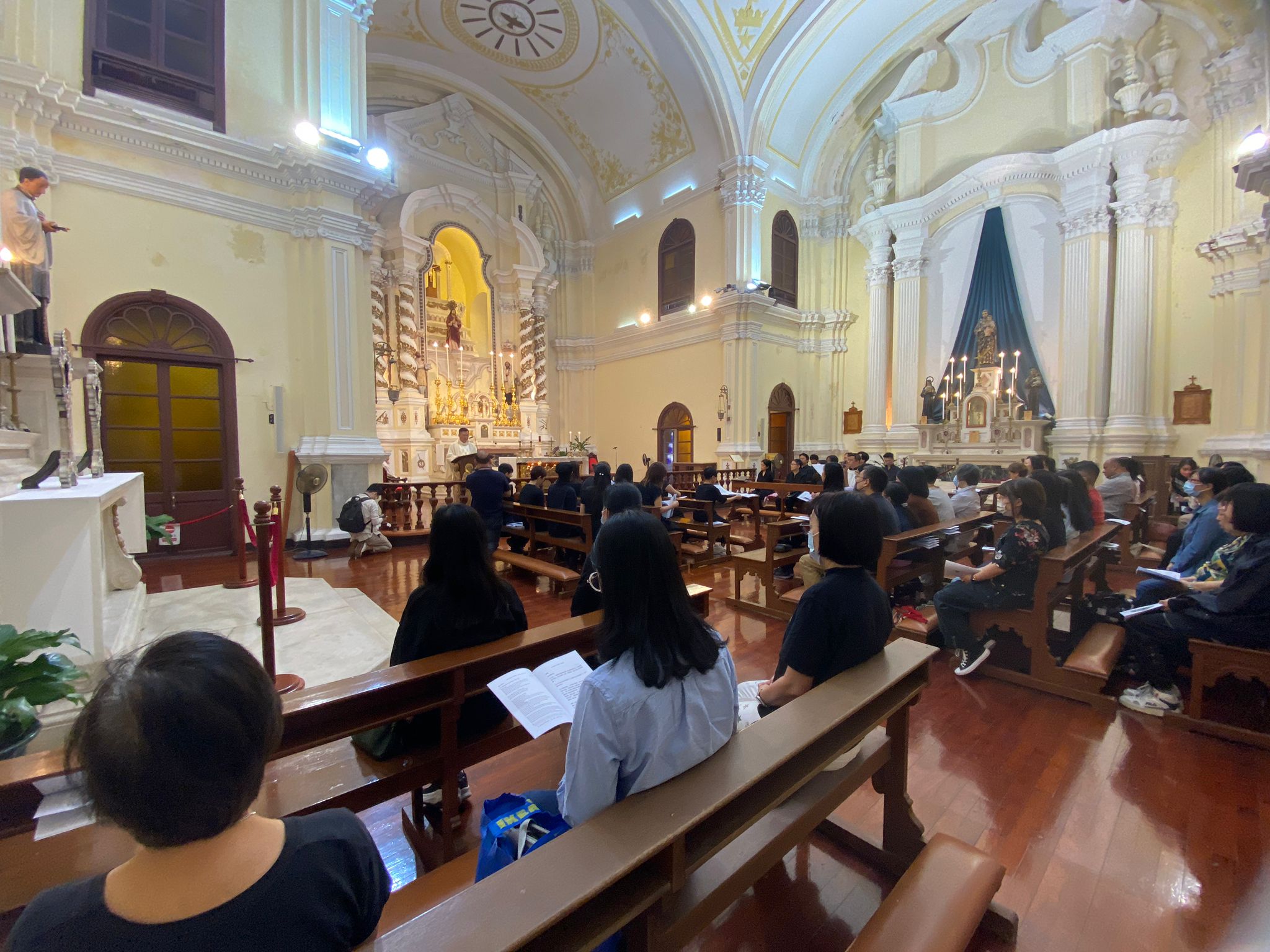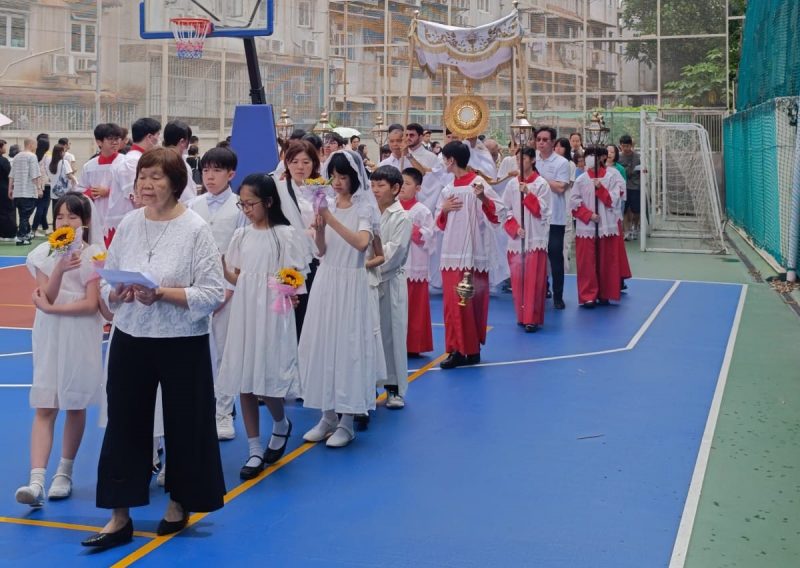Vox Antiqua’s founder and music director Andrew Leung speaks to O Clarim
Marco Carvalho
The Chaplaincy of the University of Saint Joseph (USJ) will commemorate the feast of Saint Joseph the Worker on May 1st with the organization of a choral celebration, spread out into two very different moments: as Mass in the morning and Vespers in the afternoon. The initiative brings to Macau one of the most renowned choirs from the neighboring Hong Kong Special Administrative Region, the Vox Antiqua choir. Founded and directed by Andrew Leung, the collective will perform several Gregorian chant pieces and sing one of the best-known works of the English composer William Byrd, Mass for Four Voices.
What sort of choral works will Vox Antiqua interpret in Macau?
Andrew Leung: We will be presenting a programme entitled St. Joseph Choral Celebration. It will include a Mass at Saint Joseph’s Seminary Church at 11 am and a Solemn Vespers and Benediction at the Holy Cross Chapel of the University of Saint Joseph. May 1st is the feast of St. Joseph the Worker, and we are very blessed to be able to sing at the two venues which are under his patronage.
In the morning, we will be singing William Byrd’s Mass for Four Voices. Byrd was an English Renaissance composer who lived in the time of the Reformation and persecution. He remained a faithful Catholic throughout his life, and he composed a great amount of sacred music works. This year, the world of music commemorates the 500th anniversary of his death. We will also be singing some Gregorian chants and traditional English hymns. We also wish to bring some beautiful organ music by Johan Sebastian Bach to the Baroque-style church. It is such a privilege and a blessing to be able to make music, especially sacred music, in the Saint Joseph Seminary Church, which has such fitting acoustics.
In the evening, we will be singing Vespers, which is evening prayer. The chants are specifically set for the feast day in Cantonese but based in the original Latin tones. The Cantonese Magnificat that we will sing is composed jointly by our associate director of music and myself. The piece received its world premiere about two months ago, and this will be the second time that it’s being sung in public. We will also be singing a couple of shorter choral works by composers from Spain, France, Italy and the United States of America. It’s worth mentioning that the piece by the American composer Ned Rorem, Sing, My Soul, His Wondrous Love, will be sung during the Mass as well. Rorem was born 100 years ago.
Vox Antiqua has already performed in Macau five years ago. How did that first experience go?
A.L: Vox Antiqua came to Macau for the first time in 2018. We sang for a choral evening service at the Cathedral of the Nativity of Our Lady with the Cathedral Schola and Christ Church Cathedral Choir from Oxford, United Kingdom. We joined with the Cathedral Schola of Macau to present a few works by local composers. It was a lovely experience. Since then we have also been invited to serve at various liturgies and collaborate with different groups. We always enjoy our time in Macau, especially being able to sing at the beautiful historical churches around the city.
Vox Antiqua was founded in 2017. How has it evolved since then? Do you notice an increasing interest from the Hong Kong – or even the Macau population – in sacred and choral music?
A.L: Yes, the choir was founded in 2017. We started with just a dozen singers, and the choir has grown quite a lot over the past few years. We now have over 40 active singers. Our goal remains unchanged: to sing church music to its highest standard. Through the pursuit of musical excellence, we offer our music as prayers to God and invite others to join in praying. Personally, I do think that there is an increase of interest and appreciation for sacred choral music in recent years, not necessarily because of Vox Antiqua, but due to the efforts that many people have put in. Beauty attracts people naturally, and we hope to continue to bring people to God, who is the source of all beauty.
Did the COVID-19 pandemic hinder the development and growth of Vox Antiqua? If so, how?
A.L: The past three years have not been easy for the choir. The pandemic prevented us from gathering for our regular rehearsals, liturgies and other performances. From a spiritual point of view, I can sense that there was great thirst among choir members. From the artistic point of view, I do think the situation made our development as an ensemble difficult. Like many other choirs around the world, we explored different ways to continue our music-making process. We did more recording sessions on our own for various online services and programmes, making use of social media to provide continuity to our music ministry. We are very thrilled that things are starting to return to normal. What a joy to be able to sing without a mask again!
You have worked in Macau in the past, where you founded the Cathedral Schola choir. How do you see its evolution?
A.L: Yes, I have served in Macau before and started the Cathedral Schola. I am delighted to know that the group remains active through the efforts and support of local musicians. It’s wonderful to see that it continues to offer the congregation in Macau exposure to sacred choral music. It’s also nice to see them collaborating with the Diocesan Choir, inspiring the next generation of church musicians.


 Follow
Follow


